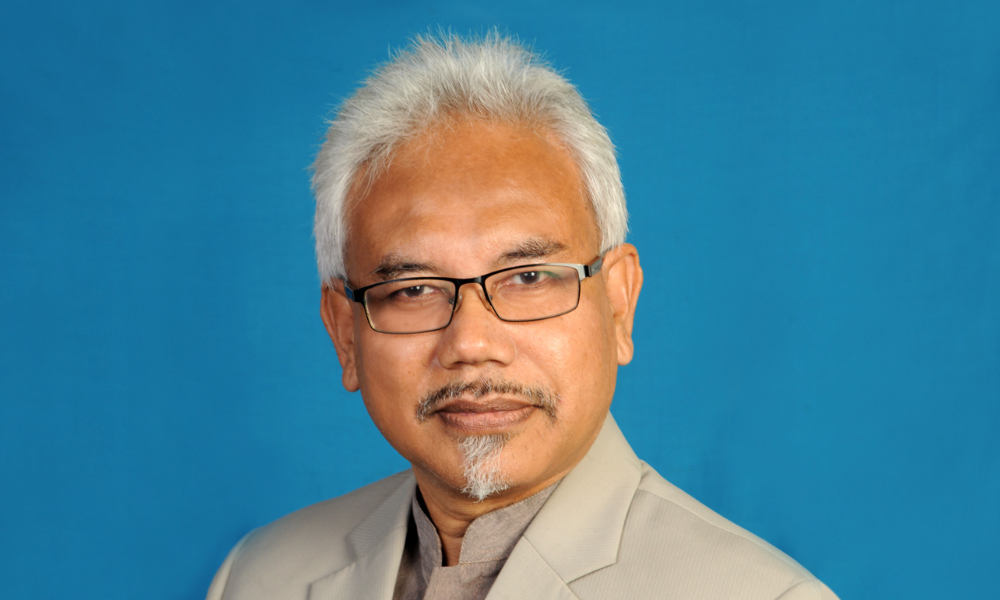Dr Muhamad Akmal Saleh appears to be confused about the constitution of valour and has conflated it with brutism, according to academic Tajuddin Mohd Rasdi.
While the Umno Youth chief should be commended for being willing to put his life on the line for the things he holds dear, the professor of architecture, however, pointed out that his brand of heroics appears misplaced.
“In Akmal’s universe, heroes are uncouth, rude, and disrespectful. Unfortunately, he fails to see that these are the characteristics associated with villains,” he told Malaysiakini.
“The simple question is, why can’t he express his disagreement in a civil manner without resorting to insults and demeaning remarks?
“Is that not what is expected of a cultured and educated person? Unless, he believes that it would not make him popular. If that is so, then he is just being opportunistic, nothing more,” he added.

Tajuddin recommended that Akmal indulge in reading and is willing to give him a list of books that would help him “expand his universe” so that he can “become a true leader when he grows up”.
“Otherwise, he will remain nothing more than a playground bully, a divisive force and a bad example for the youth,” he added.
Tajuddin was responding to Akmal’s latest remarks about his spat with DAP vice-chairperson Teresa Kok over the halal certification issue, in which he reiterated that he would not apologise or surrender.
The Umno Youth leader, who revealed that the police had summoned him for questioning, said he was taught to defend his religion, race, and motherland even if it meant risking his life.
‘Akmal is not serving Malays or Islam’
However, Tajuddin said that through his readings on Islam, he learned that as a Muslim, he has to ensure justice for all, regardless of race or creed.
“Secondly, Islam taught me that defending my home and family falls under ‘jihad’ or holy war when war is called by the nation. Islam taught me that in other struggles and strife for justice, I must always do so with ‘hikmah’ or wisdom.
“Islam taught me that insulting people, though they may be enemies, is not the way under any circumstances,” he added.

Tajuddin recounted the incident involving Caliph Saidina Ali, the son-in-law and cousin of Prophet Muhammad when he was about to strike a foe during a jihad.
“The enemy spat on his face, and Ali held his hand and walked away. When the enemy asked Ali why he stayed his hand, Ali replied, ‘When I was about to strike the killing blow, I was doing it for the sake of Allah, but when you spat on my face, I was worried that my intention was no longer pure and that I might strike or kill you in anger for my own selfish reasons’. This is the Islam I was taught,” he added.
Tajuddin also cited the writings of Malaysian academic and education activist Siddik Fadzil, who rejected the term “kafir” for “persaudaraan setanah air” (fellowship of the same nation) and “persaudaraan semanusia” (fellowship of humanity)”.
“Prophet Muhammad, from the over 20,000 hadiths I had come across, never showed the insult that Akmal showed. Once, the prophet was unhappy with a person and complained about that person to his wife when suddenly that very person turned up at his house.
“The prophet greeted the man with a smile and treated him with respect until he left. Aishah, the wife of the prophet, asked him why he was so kind and respectful to this person, and the prophet answered that the person was a guest at the house and that Islam teaches the host to respect guests.
“There is no place in Islam for the behaviour of Akmal. He only serves himself, his ego and his career. He does not serve the Malays, Islam and certainly not Malaysia,” he added. - Mkini

No comments:
Post a Comment
Note: Only a member of this blog may post a comment.